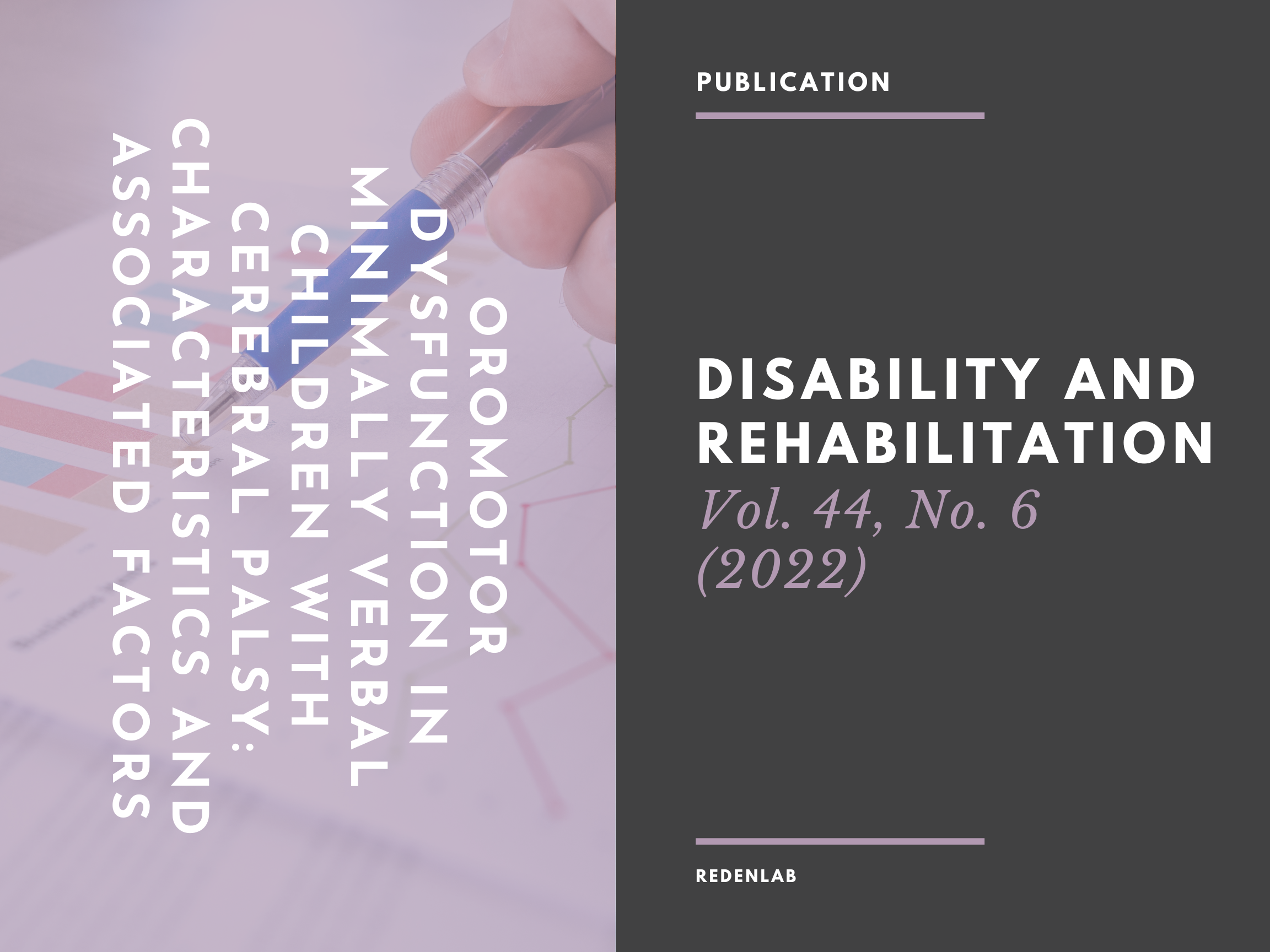Oromotor dysfunction in minimally verbal children with cerebral palsy

To explore the characteristics and associated factors of oromotor dysfunction in minimally verbal children with cerebral palsy (CP) aged five to six years, recruited from a population-based registry.
Methods: Twenty children with CP who were minimally verbal completed a standardised, observational oromotor assessment. Linear regression analyses examined the relationship between oromotor dysfunction and potential associated factors (e.g., fine and gross motor function, communication, and feeding).
Results: Oromotor dysfunction affected every participant and was identified in all structures examined (i.e., face, jaw, lips, and tongue). Oromotor movements showed little dissociation among jaw, lip, and tongue movements. Oromotor dysfunction was univariately associated with the Manual Ability Classification System levels IV–V (p = 0.001), reduced communication skills (p = 0.002), and a prolonged eating duration (>45 min) (p = 0.006), even when non-verbal cognition served as a covariate.
Interpretation: Oromotor dysfunction was highly prevalent in our sample of minimally verbal children with CP, having significant functional impacts on feeding and communication. Findings suggest that fine motor function (i.e., Manual Ability Classification System levels IV–V) is a stronger predictor than gross motor function for identifying children with CP who are minimally verbal and at risk of oromotor dysfunction.
Click here for more details
